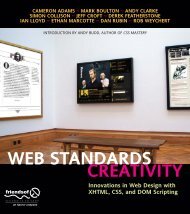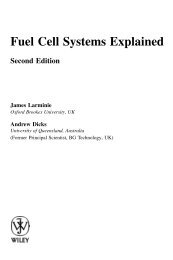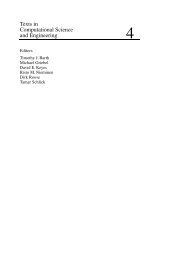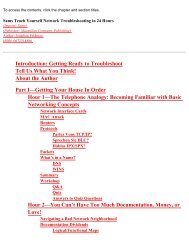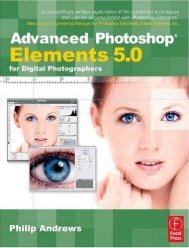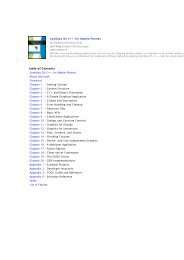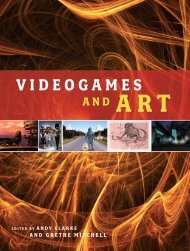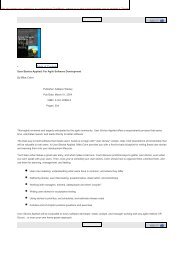Abstract
Abstract
Abstract
You also want an ePaper? Increase the reach of your titles
YUMPU automatically turns print PDFs into web optimized ePapers that Google loves.
Age ng and ts Impl cat ons for Elderly Web Exper ence 0<br />
• Disabled people who grow older, whose long-term disabilities have affected<br />
the ageing process, and whose ability to function can be critically dependent<br />
on their other faculties, which may also be declining.<br />
To accommodate elderly populations, it is necessary to understand age-related<br />
differences in sensing, processing, and acting on information. It is also essential<br />
to apply the knowledge base to ensure that Internet and the Web are easy to use,<br />
and that interaction with them is a positive experience for elderly users. With an<br />
understanding of the functional abilities of older people and their implications to<br />
their activities, the Web designer would be able to design a proper interface to suit<br />
the elderly needs. As well as understanding the psychological changes associated<br />
with ageing, it is also crucial to understand how restricted functional abilities affect<br />
elderly people when browsing the Web. A brief review of age-related impairments<br />
and their implications for elderly people’s activities on the Internet are discussed<br />
in this section.<br />
Ageing.and.Restricted.Functional.Ability<br />
It is in the nature of the ageing process that older people experience one or more<br />
related impairments that affect the individual’s functional abilities. The two most<br />
common functional abilities associated with the elderly in this regard are perception<br />
and cognition. Perception is a process of receiving information from the outside<br />
world, followed by mental activities, such as reasoning and problem solving, known<br />
as cognition. Perceptual abilities refer to the visual, auditory, and olfactory senses<br />
that combine to construct a mental image. Abilities falling within the cognitive classification<br />
represent mental processes that individuals use in performing complex<br />
tasks such as recognition of information and awareness. There are two general type<br />
of cognition: experiential and reflective. Experiential cognition is a state of mind in<br />
which humans perceive, act, and react to their surroundings effectively and effortlessly.<br />
It acquires certain level of expertise and engagement, for instance, having<br />
conversation or driving a car. In contrast, reflective cognition involves thinking,<br />
comparing, and decision-making that lead to new ideas and creativity (Preece,<br />
Rogers, & Sharp, 2002). Cognition involves range of interdependent processes: attention,<br />
perception and recognition, reasoning, memory, and learning. A decline in<br />
cognitive abilities constitutes the important aspect of the ageing process. Cognitive<br />
abilities are concerned with an individual’s capability to memorise visual input, to<br />
carry out reasoning using the input, and to recognise the information. The ability to<br />
memorise and retain new information is essential in accomplishing computer tasks<br />
(Jacko & Vitense, 2001). The locus of the problem for older adults seems to be in<br />
transfer of information from short-term memory to long-term memory (Hunt, 1993).<br />
Copyright © 2007, Idea Group Inc. Copying or distributing in print or electronic forms without written permission<br />
of Idea Group Inc. is prohibited.





